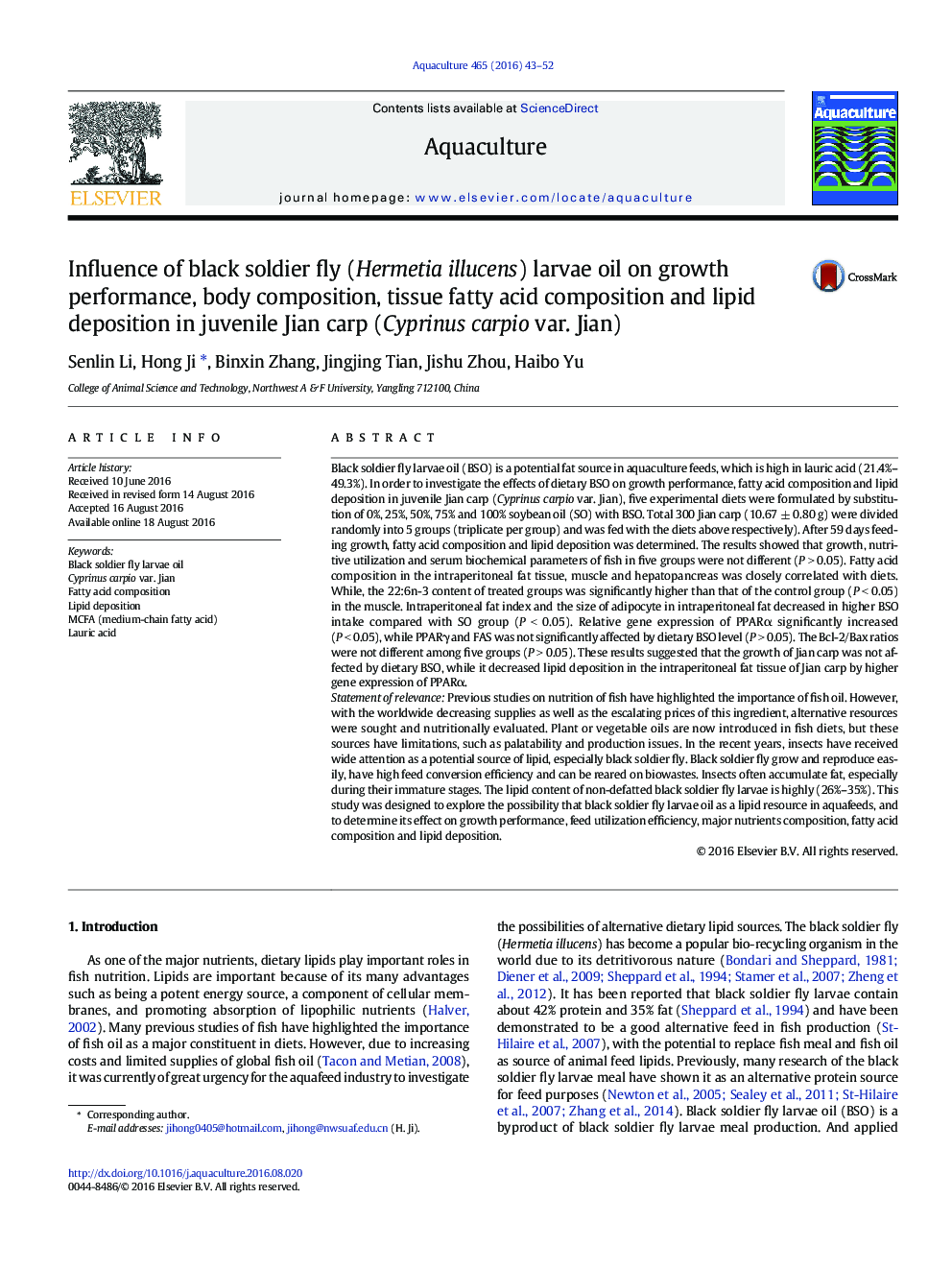| Article ID | Journal | Published Year | Pages | File Type |
|---|---|---|---|---|
| 2421314 | Aquaculture | 2016 | 10 Pages |
Abstract
Previous studies on nutrition of fish have highlighted the importance of fish oil. However, with the worldwide decreasing supplies as well as the escalating prices of this ingredient, alternative resources were sought and nutritionally evaluated. Plant or vegetable oils are now introduced in fish diets, but these sources have limitations, such as palatability and production issues. In the recent years, insects have received wide attention as a potential source of lipid, especially black soldier fly. Black soldier fly grow and reproduce easily, have high feed conversion efficiency and can be reared on biowastes. Insects often accumulate fat, especially during their immature stages. The lipid content of non-defatted black soldier fly larvae is highly (26%-35%). This study was designed to explore the possibility that black soldier fly larvae oil as a lipid resource in aquafeeds, and to determine its effect on growth performance, feed utilization efficiency, major nutrients composition, fatty acid composition and lipid deposition.
Related Topics
Life Sciences
Agricultural and Biological Sciences
Aquatic Science
Authors
Senlin Li, Hong Ji, Binxin Zhang, Jingjing Tian, Jishu Zhou, Haibo Yu,
